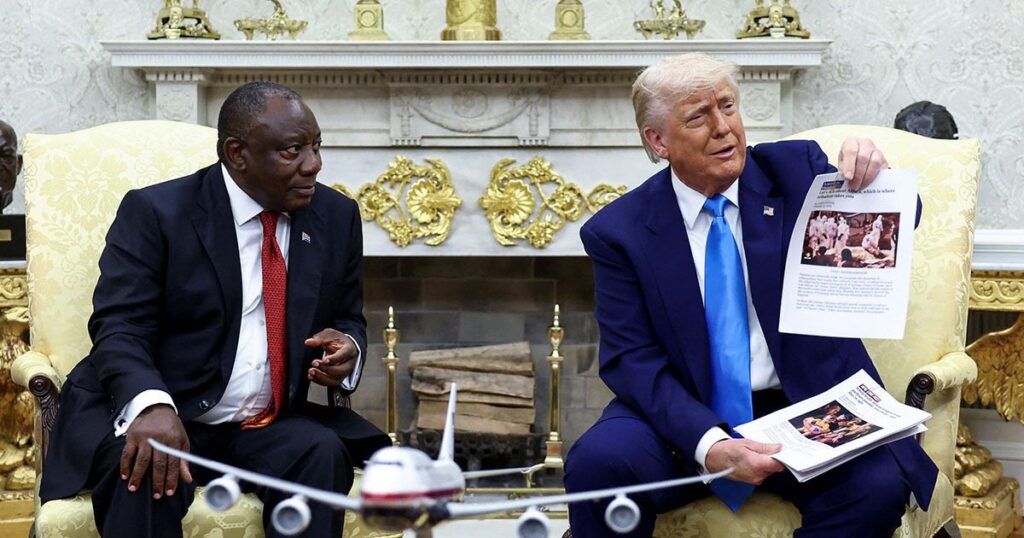Strained Relations: Ramaphosa’s Attempts to Reconnect with Trump Administration
As tensions simmer between South Africa and the United States, President Cyril Ramaphosa finds himself facing a significant diplomatic challenge. The current U.S. administration, under President Donald Trump, has increasingly isolated South Africa from its international engagements, treating it almost as a pariah. Recent actions have included the exclusion of high-ranking South African officials from key meetings, blacklisting envoys, and threatening to impose punitive tariffs that could exacerbate the nation’s ongoing economic crisis.
Key Diplomatic Setbacks
A notable incident that illustrates this diplomatic rift occurred when the Democratic Alliance (DA), the second-largest party in South Africa’s governing coalition, announced that Washington had denied a diplomatic visa to Mcebisi Jonas, a special envoy appointed by Ramaphosa. This denial is seen as a clear message regarding the Trump administration’s unwillingness to engage with South Africa positively.
Jonas, who holds a respected position as the non-executive chairman of MTN and is a former deputy finance minister, was tasked with improving the deteriorating relations between South Africa and the U.S. However, in May, he was rebuffed and labeled not as an “official interlocutor” by the U.S. government. Ramaphosa’s spokesperson described the DA’s claims as “disinformation,” without providing a direct rebuttal.
Previous Hostility and Current Dilemmas
The backdrop of these diplomatic struggles involves significant tensions caused by Trump’s past criticisms of South Africa, which include accusations of government-sanctioned violence against white citizens and past interventions in international legal matters. Trump’s administration has not only curtailed bilateral discussions but also expressed disdain for South Africa’s leadership in global forums such as the G20, which Ramaphosa currently chairs.
Compounding these issues, U.S. Treasury Secretary Scott Bessent recently opted to send a subordinate to the G20 finance ministers meeting scheduled in South Africa, further highlighting the growing chasm between the two nations. Observers speculate that this is part of a broader strategy by the U.S. to cut ties and avoid engagement with Ramaphosa’s government.
The Impact of Proposed Tariffs
Economic analysts warn that if Trump proceeds with his threats to impose tariffs of as high as 30% on South African goods, the impact could be catastrophic. The South African Reserve Bank has projected that such measures could result in upwards of 100,000 job losses, a distressing concern for a country already experiencing an unemployment rate of 32.9%.
| Measure | Potential Impact |
|---|---|
| Proposed Tariffs (30%) | Potential loss of 100,000 jobs |
| Current Unemployment Rate | 32.9% |
| South Africa’s Trade Relations | Historically strong with both parties |
Looking Ahead
Despite these setbacks, analysts like Priyal Singh and W Gyude Moore emphasize that South Africa may need to realign its foreign policy and strengthen ties with alternative partners. Given the complexities of the Trump administration’s approach to issues around racial and economic equity, future diplomatic engagements may remain challenging.
The implications for South Africa are profound, echoing a need for adaptability and resilience in foreign relations. As the nation navigates these turbulent waters, it must strategically position itself for the future, particularly in fostering new alliances while managing its economic vulnerabilities.


